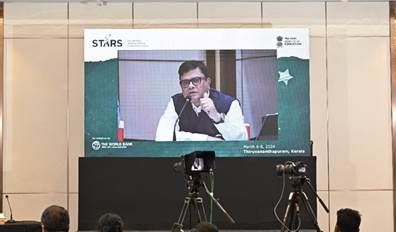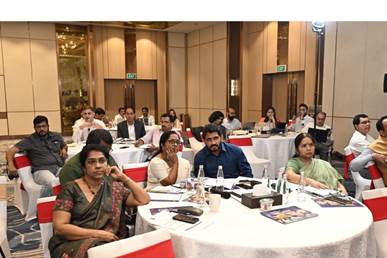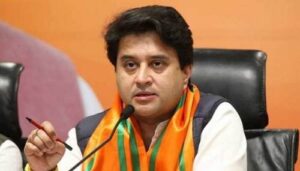New Delhi :- Secretary, Department of School Education & Literacy, Ministry of Education, Shri Sanjay Kumar chaired a three-day workshop on Financial Management and Education Planning in Thiruvananthapuram, Kerala today. It was attended by the officials from the Ministry of Education; Education Departments of the 6 STARS States, namely, Rajasthan, Kerala, Madhya Pradesh, Himachal Pradesh, Odisha and Maharashtra; and representatives from the World Bank. This three-day long workshop is part of the centrally sponsored scheme, Strengthening Teacher Learning and Results for States (STARS) programme, which is supported by the World Bank.
The Workshop aims to equip participants with valuable insights and strategies to drive positive change in education planning and implementation at both district and state levels.

The inaugural day of the workshop witnessed insightful discussions and strategic planning aimed at enhancing education quality and access across India through the STARS Project
Speaking on the occasion, Shri Sanjay Kumar highlighted the importance of a multi-year perspective to planning under STARS. He emphasized on the emerging needs and strategies to address them effectively.

Operational aspects and constraints related to budget utilization were discussed for the STARS programme, enabling stakeholders to delve deeper into the presented analysis.
The states showcased samples of their multi-year plans, fostering dialogue and collaboration during the open discussion.
In the afternoon session, an informative session on risk-based internal audits was conducted, encouraging participants to actively engage in an open discussion to address potential challenges and opportunities. The discussions focused on setting up processes for cross-learning and fiduciary performance monitoring indicators.
Tomorrow, on the second day of the workshop, the aim will be to advancing education planning strategies through the STARS programme. An overview of decentralized education planning, using the District Primary Education Programme (DPEP) case study along with a session on the relevance of decentralized planning will also be provided. The sessions will introduce tools for decentralized education planning, focusing on root-cause analysis as a key methodology for identifying underlying issues and designing effective solutions. Some of the insights into the history of decentralized planning in education policy will also be shared.
On the third and the last day of the workshop, discussions will be held on challenges in education and on the importance of strategy planning. The linkages between district and state plans with the Annual Work Plan and Budget (AWPB), emphasizing the importance of aligning planning efforts with budgetary allocations for effective implementation will also be elaborated. The final session will be on the relevance of education planning, which will shed light on its significance in enhancing educational outcomes.
***


